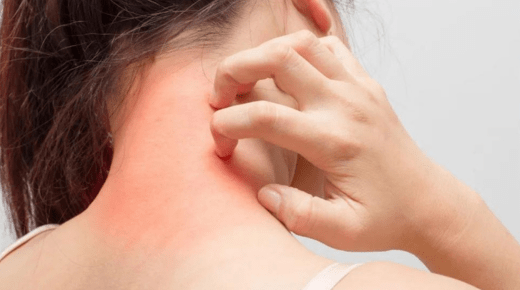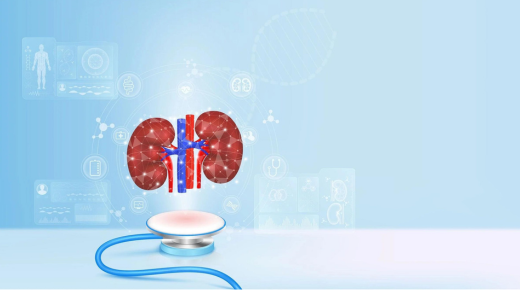1. What Are Allergies
Allergies are immune system reactions to substances that are usually harmless. These substances, known as allergens, can include foods, pollen, pet dander, and certain medications. The immune system mistakenly identifies these as threats, leading to various symptoms.
2. What Is Hypersensitivity
Hypersensitivity refers to an exaggerated immune response to an allergen. This heightened reaction can cause damage to the body’s own tissues, resulting in conditions like asthma, eczema, and anaphylaxis. There are different types of hypersensitivity reactions, each with its own mechanisms.
3. Types of Allergens
Common allergens include pollen, dust mites, mold spores, pet dander, insect stings, foods, and medications. Identifying and avoiding these triggers is crucial for managing allergies and preventing hypersensitivity reactions.
4. Immune System’s Role
The immune system’s role is to protect the body from harmful invaders. In the case of allergies and hypersensitivity, the immune system overreacts to harmless substances, producing symptoms that can range from mild to severe.
5. IgE-Mediated Allergic Reactions
IgE-mediated allergic reactions occur when the immune system produces immunoglobulin E (IgE) antibodies in response to an allergen. These antibodies trigger the release of histamine and other chemicals, causing symptoms like itching, swelling, and hives.
6. Anaphylaxis: A Severe Reaction
Anaphylaxis is a severe, potentially life-threatening allergic reaction. Symptoms include difficulty breathing, swelling, a rapid drop in blood pressure, and loss of consciousness. Immediate treatment with an epinephrine injection is critical.
7. Common Symptoms of Allergies
Allergy symptoms can include sneezing, itching, runny nose, watery eyes, hives, swelling, and digestive issues. The severity of symptoms varies depending on the individual and the type of allergen.
8. Skin Allergies
Skin allergies, such as eczema and contact dermatitis, cause itching, redness, and rashes. These conditions can be triggered by allergens like soaps, cosmetics, metals, and plants.
9. Respiratory Allergies
Respiratory allergies, such as hay fever and asthma, affect the airways and lungs. Symptoms include sneezing, coughing, wheezing, and shortness of breath. Pollen, dust mites, and pet dander are common triggers.
10. Food Allergies
Food allergies occur when the immune system reacts to certain proteins in foods. Common food allergens include peanuts, tree nuts, shellfish, milk, and eggs. Symptoms can range from mild hives to severe anaphylaxis.
11. Drug Allergies
Drug allergies happen when the immune system reacts to medications, such as antibiotics, aspirin, or chemotherapy drugs. Symptoms can include rashes, itching, and in severe cases, anaphylaxis.
12. Seasonal Allergies
Seasonal allergies, also known as hay fever or allergic rhinitis, are triggered by pollen from trees, grasses, and weeds. Symptoms include sneezing, runny nose, and itchy eyes, typically occurring during specific seasons.
13. Diagnosing Allergies
Diagnosing allergies often involves a combination of medical history, physical examination, and tests like skin prick tests or blood tests. These tests help identify specific allergens causing the reactions.
14. Managing Allergies
Managing allergies involves avoiding known allergens, taking medications such as antihistamines or corticosteroids, and using allergy shots (immunotherapy) to reduce sensitivity over time.
15. Antihistamines: First Line of Defense
Antihistamines are commonly used to treat allergy symptoms. They work by blocking histamine, a chemical released during allergic reactions. Over-the-counter and prescription options are available.
16. Corticosteroids: Reducing Inflammation
Corticosteroids help reduce inflammation associated with allergies and hypersensitivity. They are available in various forms, including nasal sprays, inhalers, creams, and oral medications.
17. Immunotherapy: Long-Term Solution
Immunotherapy, or allergy shots, involves regular injections of small amounts of allergens. Over time, this treatment can help desensitize the immune system, reducing the severity of allergic reactions.
18. Avoiding Triggers
Avoiding known allergens is crucial for managing allergies and hypersensitivity. This may involve changes in diet, using allergen-proof bedding, and maintaining a clean environment to reduce exposure to dust mites and pet dander.
19. EpiPen: Emergency Treatment
An EpiPen is an auto-injector device used to administer epinephrine during a severe allergic reaction (anaphylaxis). It quickly reverses the symptoms and is a vital tool for those with severe allergies.
20. Role of Diet in Allergies
Diet plays a significant role in managing food allergies. Reading labels carefully, avoiding cross-contamination, and being aware of hidden allergens in processed foods are essential steps.
21. Natural Remedies
Natural remedies, such as honey, probiotics, and certain herbs, may help alleviate mild allergy symptoms. However, they should not replace conventional treatments, especially for severe reactions.
22. Environmental Controls
Implementing environmental controls, such as using air purifiers, keeping windows closed during high pollen seasons, and regularly cleaning to reduce dust and mold, can help manage allergy symptoms.
23. Hypersensitivity Reactions: Types I-IV
Hypersensitivity reactions are classified into four types: Type I (immediate, such as anaphylaxis), Type II (cytotoxic, involving blood cells), Type III (immune complex-mediated, like serum sickness), and Type IV (delayed, such as contact dermatitis).
24. Genetic Factors
Genetics play a role in the development of allergies and hypersensitivity. Individuals with a family history of allergies are more likely to develop similar conditions.
25. Future of Allergy Treatments
Research in allergy treatments is ongoing, with new therapies being developed to target specific pathways involved in allergic reactions. Advances in immunotherapy, biologics, and personalized medicine hold promise for more effective treatments in the future.




